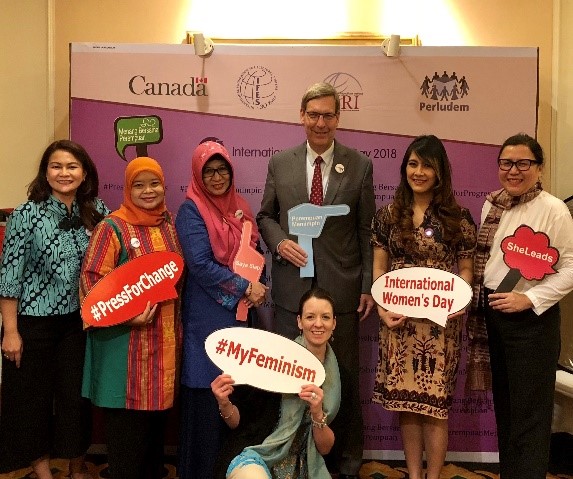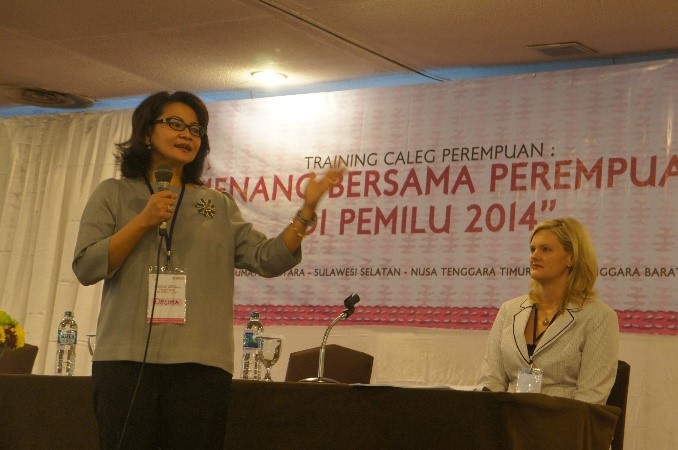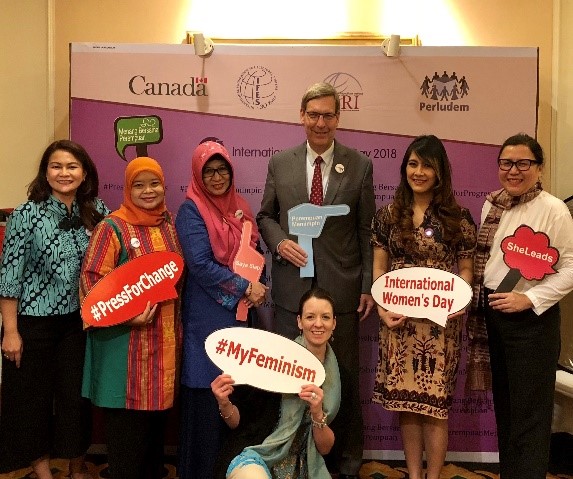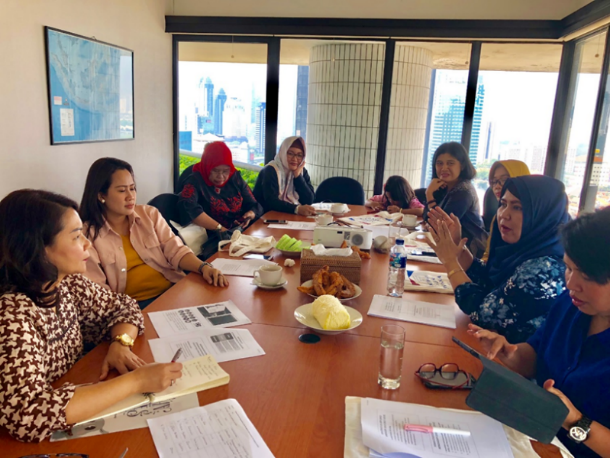
As the first local IRI staff hired in Jakarta, Indonesia in 1998, Delima Saragih has worked tirelessly to strengthen democratic governance and civil society, help build more representative political parties and increase political participation by marginalized groups, especially women and youth.
IRI’s programming in Indonesia has been able to continue successfully for 20 years because of Demila’s dedication; her friends lovingly call her the “antique of IRI Indonesia.” To further understand the extent of Delima’s impact on Indonesia’s programming, she sat down for some questions about her time with IRI.
For 20 years, you have worked with political parties, civil society, women and youth in Indonesia to improve governance within the country. Can you explain how governance and democracy in Indonesia have evolved since you began working with IRI?
Twenty years already? I didn’t even realize it! Governance and democracy have been progressing in Indonesia and have allowed for a greater participation of the people in elections.
Between 1998 when I first joined IRI and 2018, Indonesia has held four legislative elections. Throughout that time, as more of the public becomes involved in the political process, the number of recognized political parties has been growing. Before 1999 we had only three parties on the ballot. In the upcoming 2019 legislative election we will have 16 political parties on the ballot plus four local parties in Aceh.
Indonesian people have been granted greater opportunities to take a direct part in deciding their leaders and their futures. Civil society organizations are also strengthening, and now have greater access to and influence on governmental proceeding and decisions.

What has been one of your favorite memories while working at IRI?
My work with IRI enables me to meet many different people and groups in different areas, not only in Indonesia but also other countries. It is quite difficult to decide what is the most memorable!
On my first day at IRI I was sent to a meeting at USAID’s office in Jakarta where I had to explain IRI projects; but I only knew what I had been told during my interview. Talk about an intimidating first day!
When we had a multi-party training in Medan, North Sumatra in 1999 prior to the election, our training was forced to stop by local police personnel. I practically chased and grabbed the policeman’s hand so he did not enter the training room! I was determined to do everything I could to continue with the training and prepare the parties for the election.
I think the occasion I value the most was when I was asked by Ambassador Kelley Currie (currently serving as the Representative of the US to the Economic and Social Council of the United Nations) to go to Mae Sot in Thailand to train women refugees from Burma in early 2002. I was able to meet with women who were forced to leave everything behind in their country, yet despite their situation did not give up the fight for recognition of their human rights and desire for self-empowerment. A trip which I thought would be my first and last encounter with Burmese people has been re-lived through multiple travels to Yangon for women’s training programs. It is inspiring to see the dedication these women have to ensuring their voices are heard. The Burmese women I train hold a special place in my heart.

What would you consider your biggest accomplishment?
I would say when I managed a three-year Women in Politics Leadership Program from 2006-2009. We trained 100 women in four provinces, who then trained almost one thousand other women. I keep in touch with many of the core participants and love to see that many of them are still active and some are quite successful in their provinces.
What has been the single most important or influential lesson you have learned through your work?
When I started with IRI, I had little understanding of politics and knew no one in the field. The work I do with IRI allows me to interact with men and women who are dominant figures in political life. I have learned so much about Indonesian politics and democratic processes that I can confidently lead training programs for future candidates and current elected officials. I have special respect for politicians who work their way up the political ladder from the very bottom, and even when faced with adversity continue to serve their constituents because they believe there is goodness in politics.

In your opinion, what are the next steps for democracy in Indonesia?
Our democracy is dynamic, so of course there are ups and downs, highs and lows. It provides openness, access and involvement in the process. With its openness, Indonesia is not immune to what happens globally, both good and the bad. We have certainly met some obstacles along the way, but Indonesia is on the right track. Currently, I think our biggest challenges are corruption and intolerance. Next year we are going to hold the first concurrent elections, legislative and presidential elections, in Indonesia. This is going to be the biggest single-day election in the world and a test for Indonesia’s democracy.
What excites you the most about women’s future in Indonesia?
The endless opportunities to express and actualize themselves in whatever field they choose!
Delima has proven herself to be an essential part of IRI Indonesia with a wealth of knowledge and experience. IRI is grateful to have such a dedicated, hardworking and loyal staff member running our country programming in Indonesia. Thank you, Delima, for all you have done, and we look forward to seeing how your work progresses with IRI!
Top